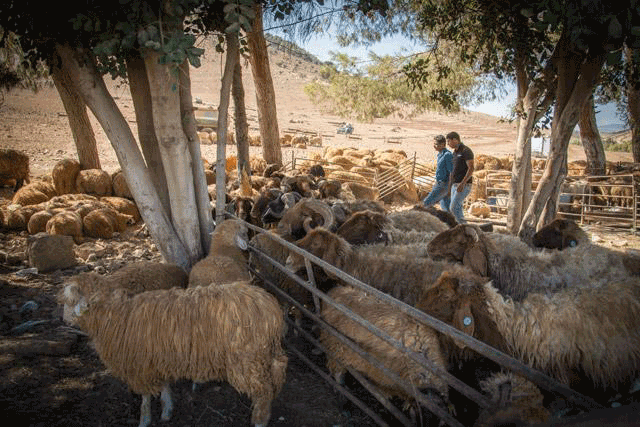AMMAN — The Kingdom’s sheep breeders and exporters fear major financial losses in light of Saudi Arabia’s ban on importing sheep from Jordan.
Earlier this year, the Ministry of Agriculture reported an outbreak of foot and mouth disease (FMD) among cattle in the village of Dhulail.
This led Saudi Arabia to impose a temporary ban on sheep imports in February. The ban was lifted in May after the World Organisation for Animal Health (WOAH) declared the end of the FMD outbreak in Jordan.
A few days later, Saudi Arabia unexpectedly resumed the ban, raising concerns among sheep farmers and exporters in Jordan.
The ministry’s Assistant Secretary-General for Livestock, Ali Abu Nukta, told The Jordan Times that no sheep in Jordan were infected with FMD.
At the time of the outbreak, the authorities applied control measures to curb the spread of the disease and organised a FMD national vaccination campaign, Abu Nukta said.
Head of the Livestock Breeders Association Zaal Kawalit told The Jordan Times that the prices of local sheep are expected to “collapse” if the ban continues.
Farmers are “already struggling” amid high fodder prices and scarce pastures, increasing their production costs, he added.
“Aside from the costs of labour, treatment and diesel for transportation, one sheep consumes at least JD80 worth of fodder per year,” he said.
There are currently over 350,000 adult local sheep in Jordan. The local market consumed less than 200,000 sheep in 2022, a 50 per cent drop from the previous year, which Kawalit attributed to “declining purchasing power”.
Moreover, he noted that 70 of consumption in the local market stems from less expensive imports of Romanian and Spanish sheep.
On May 18, Minister of Agriculture Khalid Hneifat suspended live sheep import licences and stopped shipments that had not been delivered until further notice, the Jordan News Agency, Petra, reported.
Atef Bostamgi, a sheep farmer in Karak, told The Jordan Times that his sales have plummeted over the past four months.
If the ban persists, the local sheep prices will likely decrease from JD4.50 to JD4 per kilogramme by Eid Al Adha, he added.
Bostamgi, who currently has 2,000 sheep, estimated that his losses following this decrease will reach around JD30 to JD40 per sheep, likely exceeding JD50,000 in total.
Livestock farmers typically purchase sheep for around JD150 to JD160 per head, and continue to pay JD20 per month in fodder until the animal is old enough to be sold, he noted.
The older and larger the sheep gets, the more it costs to feed and maintain it, Bostamgi added.
Each sheep in Bostamgi’s current flock weighs between 45 and 55 kilogrammes; and each costs between JD230 and JD240 to maintain. The sheep are then sold at price points ranging from JD270 to JD280, “a price that the average consumer in Jordan can’t afford”, he said.
Opening exports to the Saudi market is “the only solution”, as Jordanian consumer preferences lean towards smaller and cheaper imported sheep, rather than local sheep, Bostamgi said.
Jordan exported around 600,000 sheep to the Gulf Cooperation Council (GCC) countries in 2022, around 70 per of which went to the Saudi Arabian market, according to Kawalit.
Abu Nukta pointed out that Jordanian sheep are in-demand in GCC countries, all of which are linked by a singular land crossing through Saudi Arabia.
The Ministry of Agriculture is currently looking into the matter, Abu Nukta said, noting that the situation “will become clearer soon” as the Saudi Minister of Environment, Water and Agriculture is expected to visit Jordan on Thursday.
